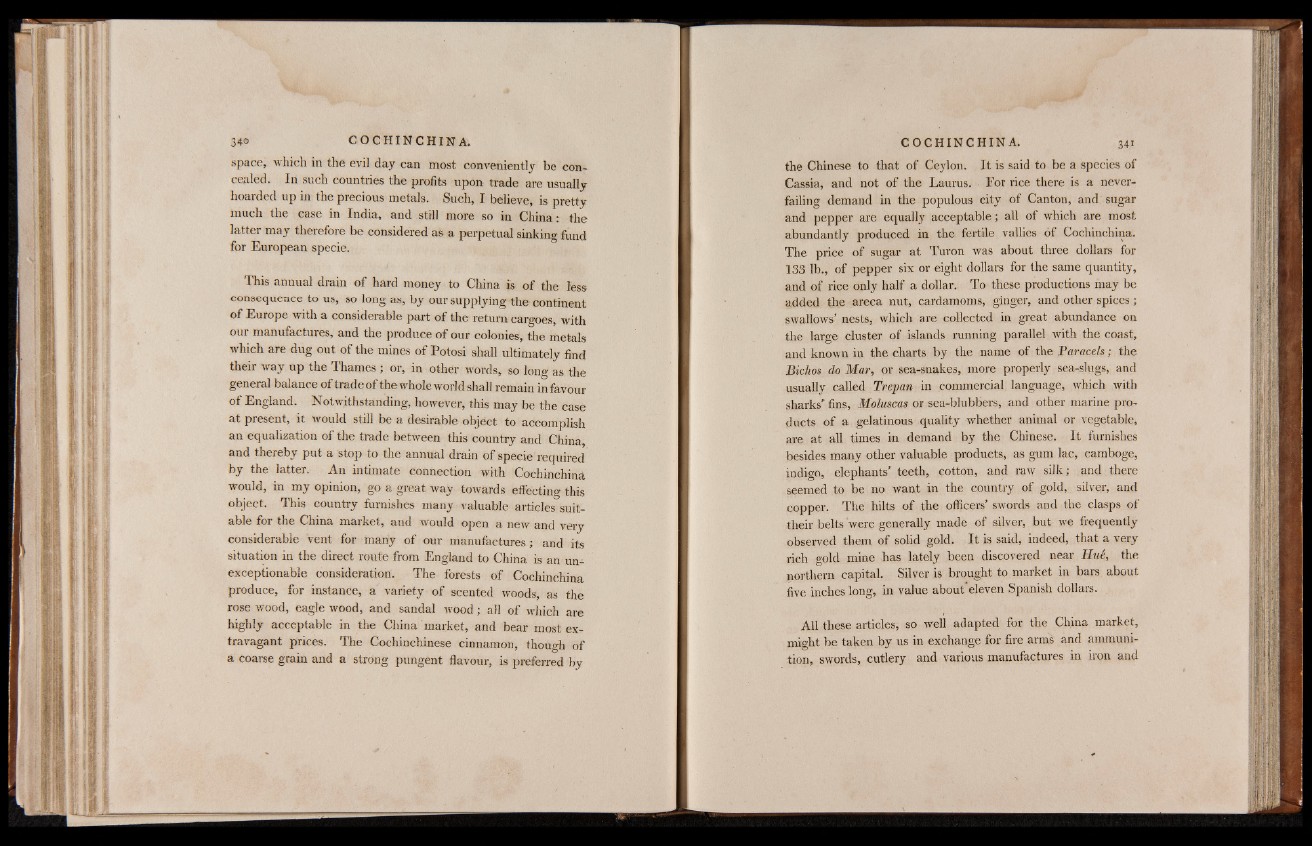
space, which in the evil day can most conveniently be concealed.
In such countries the profits upon trade are usually
hoarded up in the precious metals. Such, I believe, is pretty
much the case in India, and still more so in China: the
latter may therefore be considered as a perpetual sinking fund
for European specie.
This annual drain of hard money to China is of the less
consequence to us, so long as, by our supplying the continent
of Europe with a considerable part of the return cargoes, with
our manufactures, and the produce of our colonies, the metals
which are dug out of the mines of Potosi shall ultimately find
their way up the Thames ; or, in other words, so long as the
general balance of tradeof the whole world shall remain in favour
of England. Notwithstanding, however, this may be the case
at present, it would still be a desirable object to accomplish
an equalization of the trade between this country and China,
and thereby put a stop to the annual drain of specie required
by the latter. An intimate connection with Cochinchina
would, in my opinion, go a great way towards effecting this
object. This country furnishes many valuable articles suitable
for the China market, and would open a new and very
considerable vent for many of our manufactures; and its
situation in the direct route from England to China is an unexceptionable
consideration. The forests of Cochinchina
produce, for instance, a variety of scented woods, as the
rose wood, eagle wood, and sandal wood; all of which are
highly acceptable in the China market, and bear most extravagant
prices. The Cochinchinese cinnamon, though of
a coarse grain and a strong pungent flavour, is preferred by
the Chinese to that of Ceylon. I t is said to be a species of
Cassia, and not of the Lauras. For rice there is a never-
failing demand in the populous city of Canton, and sugar
and pepper are equally acceptable ; all of which are most
abundantly produced in the fertile vallies of Cochinchina.
The price of sugar at Turon was about three dollars for
133 lb., of pepper six or eight dollars for the same quantity,
and of rice only half a dollar. To these productions may be
added the areca nut, cardamoms, ginger, and other spices ;
swallows’ nests, which are collected in great abundance on
the large cluster of islands running parallel with the coast,
and known in the charts by the name of the Paracels ; the
Bichos do Mar, or sea-snakes, more properly sea-slugs, and
usually called Trepan in commercial language, which with
sharks' fins, Moluscas or sea-blubbers, and other marine products
of a gelatinous quality whether animal or vegetable,
are at all times in demand by the Chinese. I t furnishes
besides many other valuable products, as gum lac, camboge,
indigo, elephants’ teeth, cotton, and raw silk ; and there
seemed to be no want in the country of gold, silver, and
copper. The hilts of the officers’ swords and the clasps of
their belts were generally made of silver, but we frequently
observed them of solid gold. I t is said, indeed, that a very
rich gold mine has lately been discovered near Hué, the
northern capital. Silver is brought to market in bars about
five inches long, in value about eleven Spanish dollars.
All these articles, so well adapted for the China market,
might be taken by us in exchange for fire arms and ammunition,
swords, cutlery and various manufactures in iron and